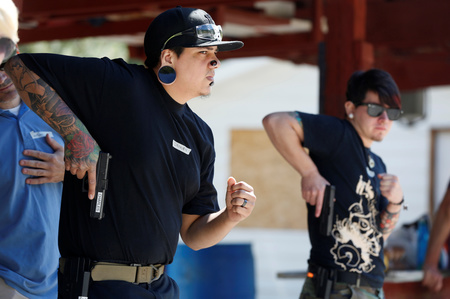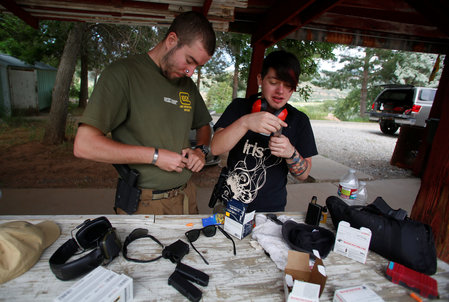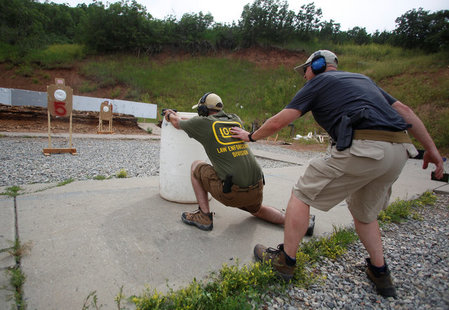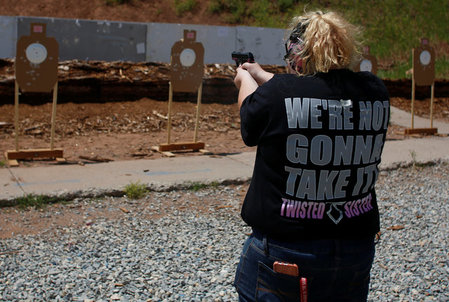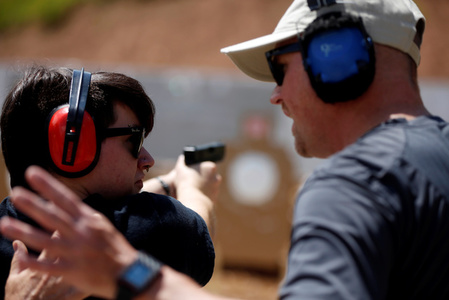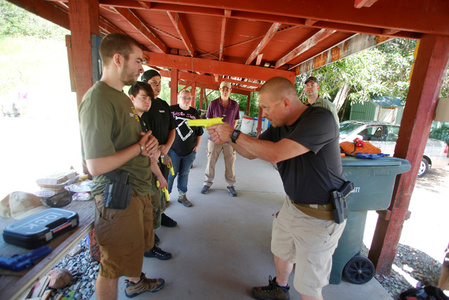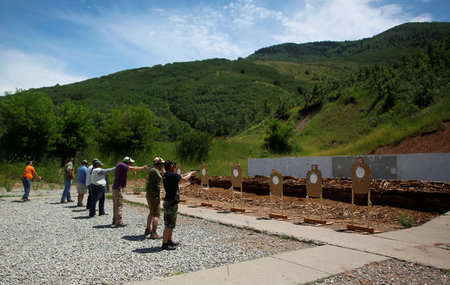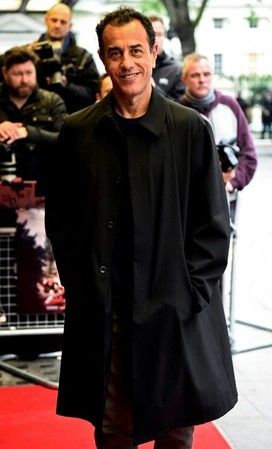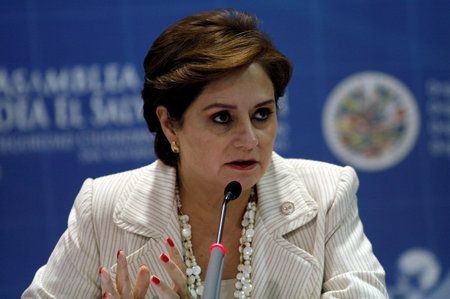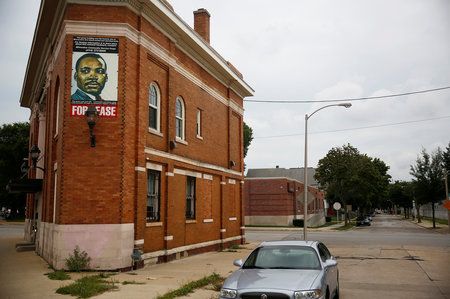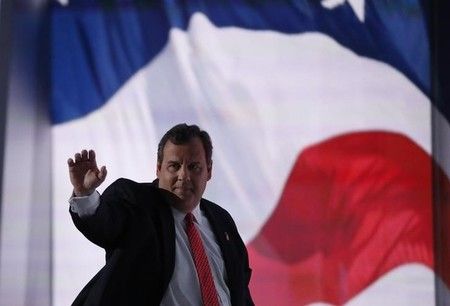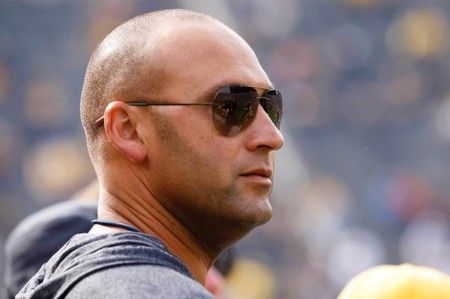Advertisement
After Orlando shooting, gay leaders train sights on guns
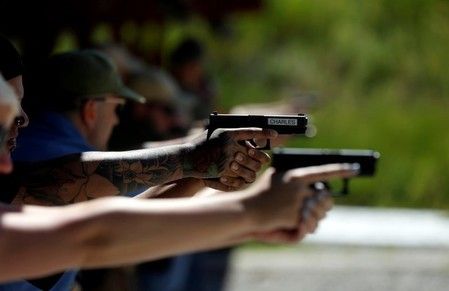
By Joseph Ax
NEW YORK, August 2 (Reuters) – Dozens of leading civil rights activists gathered earlier this summer at Congregation Beit Simchat Torah in New York, the largest lesbian, gay, bisexual and transgender synagogue in the United States.
It was two days after the mass shooting at a gay nightclub in Orlando. But they weren’t there to mourn. The group that included Evan Wolfson, often described as the architect of the modern same-sex marriage movement, was there for action.
The participants discussed how to mobilize the same grassroots machinery that moved marriage equality from political pipe dream to reality in a matter of years, this time in the name of gun safety.
That meeting was the first of many solidifying an alliance between advocates for gun control and gay rights. Prominent leaders in both movements have created a working group, hashed out strategy and are planning a Washington, D.C., rally that aims to capitalize on one of the hallmarks of the gay rights movement – street-level activism.
Veteran gay activists are helping manage campaigns for state ballot measures this fall that would expand background checks for gun buyers. Representatives of the Human Rights Campaign, the largest U.S. gay advocacy group, plan to lobby for gun safety laws in visits with members of Congress during their recess this month and with state lawmakers when they return to session next year.
Gun control advocates, who have seen legislative efforts repeatedly stymied by a reluctant Congress and the gun lobby, said they welcomed the help from a community that Wolfson described in an interview as a “sleeping giant that has been awakened.”
But Orlando was catalytic for gays on both sides of the gun issue. Since the shooting, membership swelled 500 percent to more than 8,000 in Pink Pistols, a pro-gun gay group with the motto: “Armed queers don’t get bashed.”
A spokeswoman for the National Rifle Association declined to comment on how gay rights groups were approaching gun control. The gun lobbying group has encouraged gays and other minorities to use guns for self defense.
TAKING IDEAS AND TALENT
The Orlando shooting bolstered ongoing efforts by the gun control movement to borrow from the same-sex marriage playbook: take the fight to the states and build grassroots support.
“In many ways, we took a page right from the political arc of marriage equality,” said John Feinblatt, director of Everytown for Gun Safety, the anti-gun violence group founded by billionaire former New York City Mayor Michael Bloomberg. “Is it going to win overnight like a light switch? Absolutely not – but neither did marriage equality.”
Like Mark Glaze, his predecessor at Everytown, Feinblatt is a gay advocate whose involvement has reinforced the strategic ties between the two movements.
Similarly, Zach Silk, who helped lead the successful 2012 Washington State same-sex marriage ballot initiative, went to work on gun safety weeks after the Newtown, Connecticut school massacre that same year. In 2014, he helped pass a referendum on expanded background checks, and he is currently working for a comparable initiative in Nevada.
Matt McTighe, a veteran strategist for same-sex marriage ballot initiatives, is working with Everytown as a consultant on a background checks referendum in Maine this fall.
The ballot measures attempt to capitalize on something the same-sex marriage movement didn’t enjoy at the outset: broad public support. Polls show modest measures, such as expanded background checks, are overwhelmingly popular.
Several federal courts have upheld state limits, such as military-style assault weapons bans, that go beyond the background checks in pending ballot measures.
The legal terrain is defined by the landmark 2008 U.S. Supreme Court decision known as Heller, which ruled the 2nd Amendment of the U.S. Constitution protects the right to own guns.
“It’s hard to see what item on the gun control agenda would be barred under Heller,” said Adam Winkler, a law professor at the University of California, Los Angeles, and author of “Gunfight: The Battle over the Right to Bear Arms in America.”
Gun control supporters have adopted another tactic from the same-sex marriage movement: putting a human face on the issue.
Everytown has been building a survivors’ network so victims can share their stories.
“Freedom to marry came from storytelling – meeting people in love who wanted to have families like everyone else,” Feinblatt said. “We have a 1,000-member network who are turning grief into political action.”
Gay rights groups, like the National LGBTQ Task Force, plan to draw on deep ties they have developed with state and federal lawmakers through years of lobbying.
Still, leaders worry progress could stall as the raw emotions surrounding Orlando fade. To that end, some groups are emphasizing the gay community’s vulnerability to hate crimes and domestic violence.
“This is an everyday issue for our community,” said Meghan Maury, the senior policy counsel for the National LGBTQ Task Force. “It won’t be sustainable if we only talk about this in the context of Orlando.”
(Reporting by Joseph Ax; Editing by Dina Kyriakidou and Lisa Girion)


